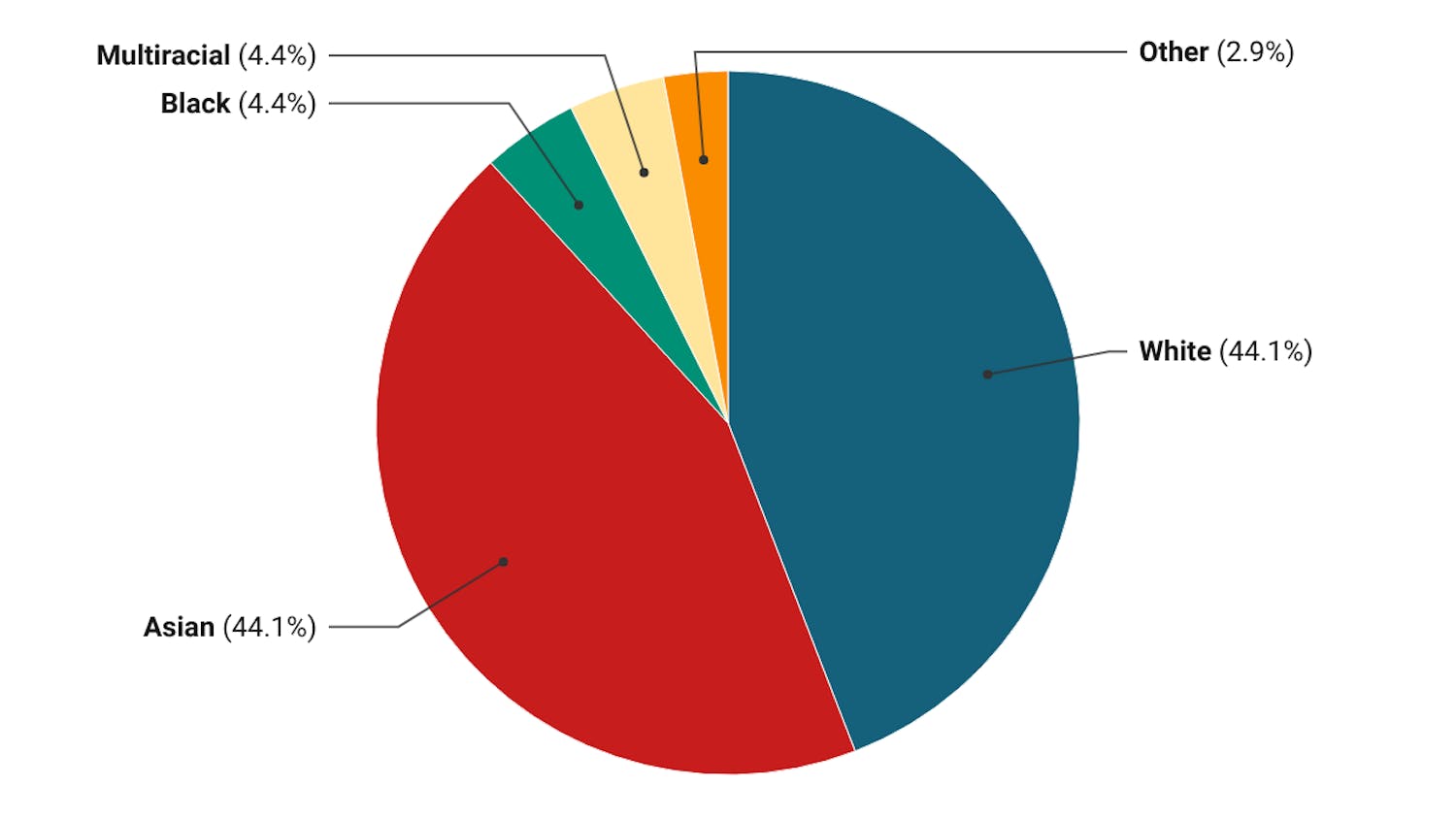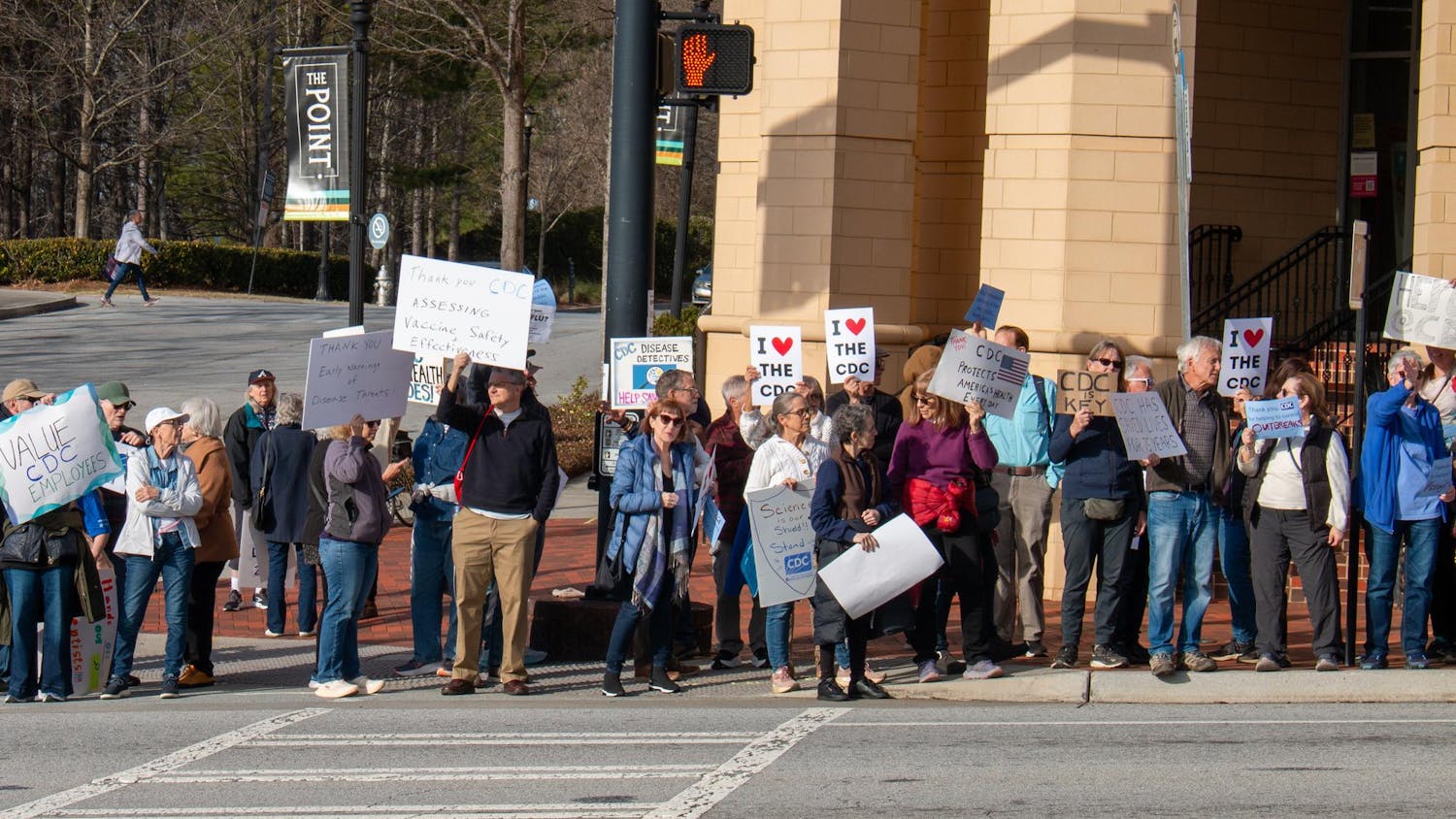There’s no question that Pete Buttigieg has been making waves in the Democratic presidential primary contest over the past year. The openly gay, millennial mayor of South Bend, Ind., currently sits at a solid fourth place in national polling, well above opponents like entrepreneur Andrew Yang and Sen. Amy Klobuchar (D-Minn.). Buttigieg also surged to first place in Iowa in November, according to a poll conducted by CNN. The charismatic, Ivy League-educated newcomer has been swaying voters nationwide with seemingly pragmatic appeals to progressive policy.
However, beneath the veneer of intelligence and engaging speeches of “Mayor Pete” lies a deeply problematic track record, and his history should dissuade Democratic primary voters from choosing him on their ballot this spring.
Buttigieg’s struggle to court voters of color has been the subject of much mediaattention in recent weeks, as he received no support from black voters in South Carolina in a recent Winthrop University (S.C.) poll. Mayor Pete’s troublesome past on racial issues extends well beyond a mere failure to garner African American support. Shortly after becoming mayor in 2012, Buttigieg was reportedly coerced into demoting South Bend’s black police chief Darryl Boykins after he allegedly recorded phone calls between white senior police officials. However, a tape was released that caught the officials using racially charged language toward Boykins, who consequently won $50,000 in a suit filed for discrimination.
Black residents of South Bend have also questioned Buttigieg’s concern for their community following a police killing of 54-year-old Eric Logan in June 2019, during which the officer’s body camera was turned off. During a meeting for South Bend community members, Buttigieg answered to one woman that he was “not asking for [her] vote” by returning to South Bend following the shooting. In addition to these incidents, Buttigieg conducted endorsements by black leaders for his Douglass Plan to combat racial inequality on an “opt-out” basis, and his campaign used a stock photograph of a Kenyan woman for his Douglass Plan website. It’s abundantly clear that Buttigieg is, at best, indifferent to black Americans and their struggles and, at worst, complicit in racist governance.
Though his problems in addressing the concerns of black Americans are numerous, Buttigieg’s issues extend into other important avenues as well. Notably, many journalists have called into question the nature of his work at global consulting firm McKinsey & Company, where he was employed after graduating from Oxford University in 2007. In December, he released a full list of his clients from his tenure at the firm, which included health insurance giant Blue Cross Blue Shield. At a time where tens of thousands of American deaths are connected to a lack of basic health care, Buttigieg’s prior business association with the health insurance industry is extremely questionable.
Perhaps Mayor Pete’s prior relationship with Blue Cross Blue Shield would be more permissible if his platform reflected a truly progressive outlook on health care, but this is not the case.The connection raises questions about his lackluster health insurance proposal, a plan that would allow Americans to opt-in to a public, government-sponsored health insurance option, sneakily named “Medicare for All Who Want It.” The plan’s name is arguably a sly attempt to confuse voters who support the single-payer “Medicare for All” plans of other Democratic candidates. Buttigieg’s plan would fail to adequately address the underlying conflict-of-interest inherent in for-profit health insurance. These companies’ financial gains often come at the expense of human suffering and lives. Given his past work assisting private health insurance and the mediocre terms of his proposal, it’s clear that Mayor Pete isn’t up to take on the challenges that working-class Americans face with the intensity necessary to combat them.
There’s much more I could say about why Buttigieg is not the candidate our country needs at this time (or at any time), but, in my opinion, the details I’ve presented are sufficient. His refusal to step up against racist actors in South Bend’s police force and work with Blue Cross Blue Shield at McKinsey demonstrate that he lacks the integrity we should demand from our nation’s highest office. His health insurance proposal fails to address several ethical issues in private health insurance industry and its operation. As an LGBTQ+ ally, I’m more than happy to see an openly gay candidate with a viable chance of securing the Democratic nomination, but given his many other issues, Mayor Pete’s candidacy is plagued with the very corrupt, narrow-minded status-quo ideology that we as Americans must seek to overcome.
Zach Ball (20C) is from Griffin, Ga.








